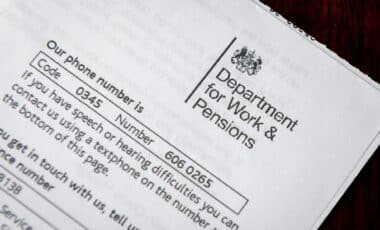Proposed changes to Personal Independence Payment (PIP) and Universal Credit (UC) by the UK government are set to impact millions of families, with some facing significant financial losses.
The government claims the reforms will save £5 billion by 2030, but critics, including a growing number of Labour MPs, are pushing back, arguing that the changes will disproportionately affect vulnerable groups.
The changes come as part of a broader government strategy to reduce welfare spending, but the planned alterations to PIP and UC have sparked a heated debate. While the government argues that the system is unsustainable, critics claim the cuts will place an additional burden on those who rely on these essential benefits.
Changes to Personal Independence Payment (PIP)
PIP is paid to millions of people in the UK who have long-term physical or mental health conditions. The government’s proposals include tightening the eligibility criteria for the daily living component, which helps people with daily activities like cooking, washing, and dressing.
According to the Office for Budget Responsibility (OBR), the tightened assessment rules are set to affect around 800,000 people. Currently, individuals qualify for the daily living component by scoring between one and 12 points for difficulties in daily tasks, with a score of four points needed to qualify for support.
However, under the new rules, claimants will need to score at least four points for each activity to qualify, potentially disqualifying many people who currently receive help for milder difficulties.
The government’s proposal also includes more frequent reassessments for most PIP claimants, although those with the most severe, permanent conditions will be exempt. The change aims to streamline the system and reduce costs but will leave some individuals with less financial support.
Universal Credit and its Impact
Universal Credit, which currently supports 7.5 million claimants, is also facing changes. The basic payment level will rise, but certain components, such as the incapacity top-up, will be frozen for several years.
The government aims to limit this top-up to individuals aged 22 and over, affecting 2.25 million current claimants, with an estimated average loss of £500 annually.
For new claimants, the incapacity top-up will decrease from £97 to £50 per week by 2026, and the higher rate for existing claimants will also be frozen. Despite these cuts, the increase in the basic allowance for UC will provide some compensation. The government has said that additional investments to help people with disabilities find work will help offset the financial losses from these reforms.
According to the Department for Work and Pensions (DWP), the combined impact of these changes will affect around 3.2 million families, who will face an average loss of £1,720 per year.
The government argues that these changes are necessary to reduce welfare spending, projected to rise to £100 billion by 2029, but critics remain concerned about the long-term impact on vulnerable individuals and families.
The reforms are set to be voted on by MPs in early July, with many Labour MPs warning that the proposals will exacerbate inequalities and disproportionately affect those who need support the most.









